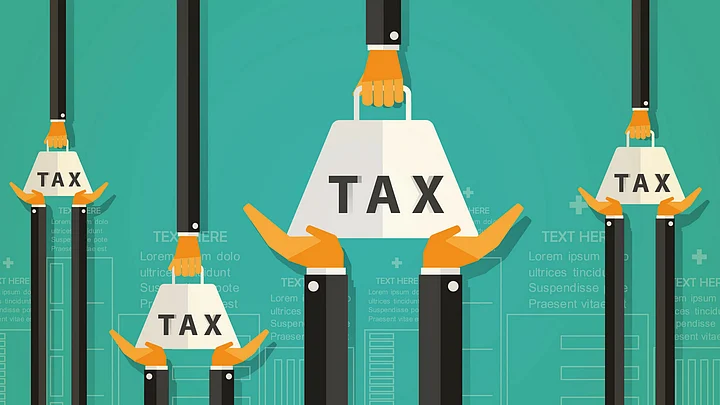Income tax savings have always been a daunting task to understand, especially for new members to the workforce. ELSS, HRA, PPF, etc are all words that seem very puzzling but are actually very easy to understand. By making smart investments early in the financial year, you can keep a track of your money and also avoid any unpleasant situations later.
Here are here some simple tax investments that you should be aware of. These can help you expand your disposable income:
Use Your Rs 1.5 Lakh Limit Under Section 80C
The below mentioned investments/deductions are all subject to a cap of Rs 1.5 lakh. In other words, they are either/or investments and making one type of investment will reduce room for another:
Section 80C allows individuals to claim tax deduction to a cap of Rs 1.5 lakh. Below are some investments that you can consider which can help you save on income tax:
Tax-Saver FDs :
Individuals can gain tax deduction of up to Rs 1.5 lakh under 5 year tax-saver fixed deposits (FD). They carry a fixed rate of interest currently between 7-8 percent. However, the interest on these FDs are taxable.
PPF (Public Provident Fund):
Public Provident Fund (PPF) is a government-established savings scheme with a tenure of 15 years available at most banks and post offices in India. Its rate changes every quarter but is currently 8 percent. The interest on PPF is tax-free.
ELSS Funds:
Equity Linked Savings Schemes or better known as ELSS mutual funds which have a lock-in period of 3 years. The returns on ELSS funds are subject to Long Term Capital Gains Tax (LTCG) at 10 percent, over and above an exemption limit of Rs 1 lakh.
NSC (National Saving Certificate:
A National Savings Certificate has a tenure of 5 years and a fixed rate of interest. The interest rate is currently 8 percent. The interest on NSC is also automatically counted towards the Rs 1.5 lakh 80C limit and is tax-deductible if no other investments are using up the limit.
Life Insurance Premiums:
Unit Link Insurance Plans, term insurance and endowment policies are life insurance premiums which are tax deductible up to Rs 1.5 lakhs. However, the insurance cover must be at least 10 times the annual premium.
National Pension System (NPS): This deduction is available under Section 80CCD up to Rs 1.5 lakh for contributions to NPS. This is over and above the Rs 50,000 deduction available under Section 80CCD(1B) discussed below.
Home Loan Repayment:
Repayment of the principal amount on a home loan is tax deductible up to Rs 1.5 lakh per annum.
Payment of tuition fees
Payment of tuition fees for your children is tax deductible up to Rs 1.5 lakh per annum.
EPF:
Under the EPF Act, 12 percent of the pay of employees in the organised sector is deducted towards Employees Provident Fund. This deduction counts towards the Rs 1.5 lakh limit under Section 80C.
Senior Citizens Savings Scheme
Contribution to the SCSS is tax deductible up to Rs 1.5 lakh. SCSS has a tenure of 5 years and is available to those above 60. The rate for SCSS is higher than prevailing FD rates and is currently 8.7 percent (it is taxable).
Sukanya Samriddhi Yojana
Parents of a girl child below the age of 10 can get this deduction. This account has a tenure of 21 years or until the girl marries after turning 18. It has an interest above prevailing rates (currently 8.5 percent) and the interest is tax-free.
Contribute to the National Pension System
This deduction under Section 80CCD(1B) up to Rs 50,000 is only available for contributions to the NPS. The NPS allows you to invest in equity and debt pension funds and build a retirement corpus. You can withdraw it at age 60.
Pay Health Insurance Premiums
Under Section 80D, a deduction of upto Rs 25,000 is available for health insurance premiums. For senior citizens, this time is increased to Rs 50,000. A person contributing health insurance to himself and senior citizens parents can avail of the combined deduction upto Rs 75,000 per annum.
Deductions on Rent
Individuals can claim tax deductions on your house rent allowance (HRA). There is no upper limit for the deductions but there is a certain cap on HRA deductions. If you do not get HRA but you pay rent, you can claim a deduction under Sector 80G of the Income Tax Act upto Rs 60,000 per annum.
Deduction on Your Home Loan Interest
If you have a house loan the interest payable on it tax deductible under Section 24 of the Income Tax Act upto Rs 2 lakh per annum. If you give out the house on rent, there is no upper limit. However the total loss that can be claimed on the broader head of income from house property is capped at Rs 2 lakh.
Keep Some Money in Your Savings Account
Interest on savings accounts is tax free up to Rs 10,000 per year under Section 80TTA of the Income Tax Act. For senior citizens, the limit is Rs 50,000 for both fixed deposits and savings account interest under Section 80TTB.
Contribute to Charity
Charitable deductions are tax deductible by nature. For most donations to NGOs, the limit is 50 percent of the donated amount and up to 10 percent of your adjusted total income. NGOs under this section are required to have an 80G certificate for the individual to be able to claim a tax deduction.
(With inputs from Paisabazzar and Cleartax)
